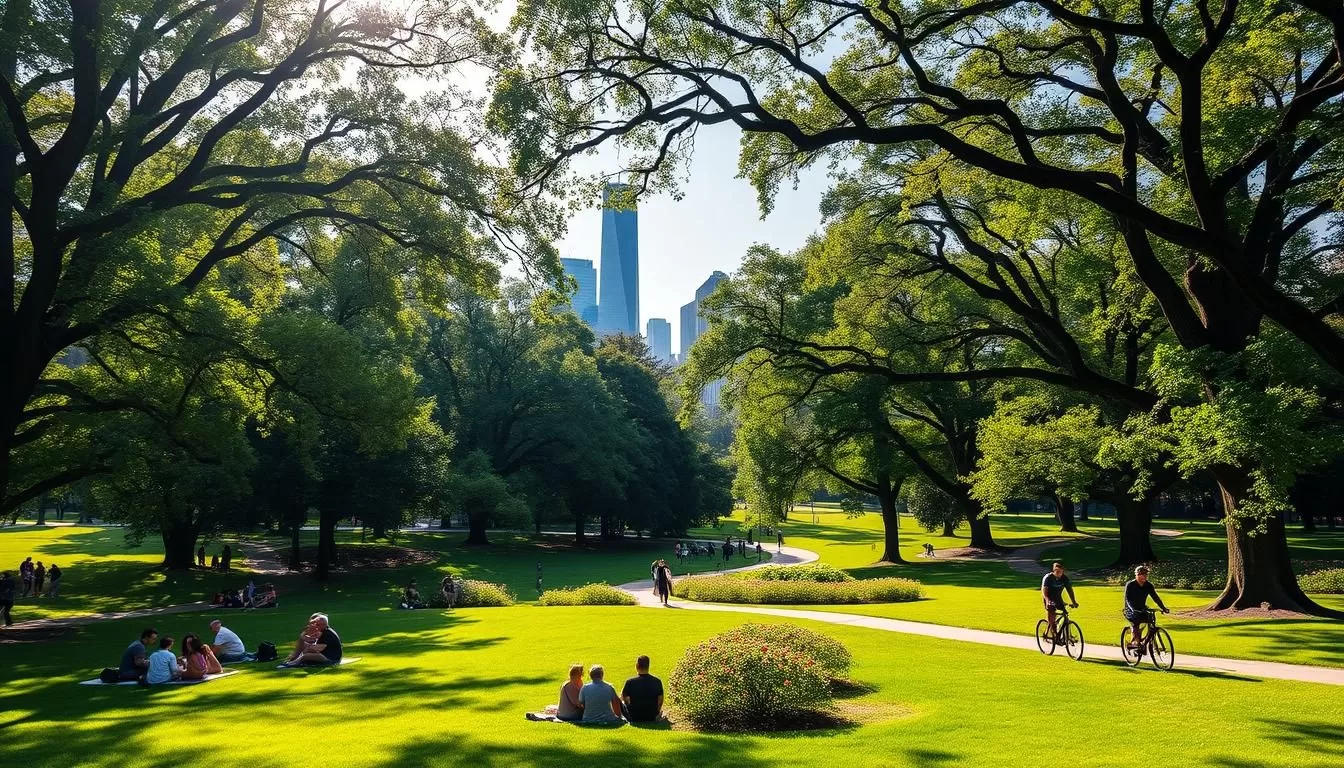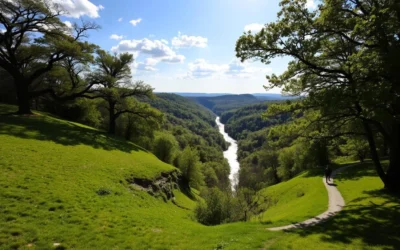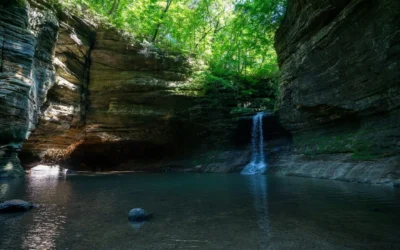✓ Accommodations✓ Flights✓ Rental Cars✓ Tours & Activities
As you explore the city, you’ll find that Chicago’s park system is one of its most impressive features, boasting over 600 facilities throughout the city.
From tiny neighborhood playlots to vast expanses of green space, there’s something for everyone to enjoy. The city’s motto, “City in a Garden,” reflects its commitment to providing beautiful public parks and natural areas for residents and visitors alike.
These parks serve as more than just recreational spaces; they’re cultural hubs hosting summer festivals, outdoor movies, and various community events, making your visit to the city even more enjoyable.
Exploring Chicago’s Urban Green Spaces
As you explore Chicago, you’ll discover that its urban green spaces are a defining feature of the city’s landscape. The city’s extensive network of parks and green areas not only enhances its beauty but also contributes significantly to the quality of life for its residents.
![]()
Chicago’s Park System Overview
Chicago’s park system is one of the oldest and most extensive in the nation. The Chicago Park District manages over 8,800 acres of green space, ensuring that most residents have access to a park within walking distance of their home. This strategic distribution of green spaces throughout the city reflects Chicago’s commitment to preserving nature within its urban environment.
The park system includes a diverse range of facilities, from traditional parks and beaches to fieldhouses and cultural centers. Many of these spaces were designed by renowned landscape architects, further enriching the city’s relationship with nature.
The “City in a Garden” Legacy
Chicago’s motto, “City in a Garden” (Urbs in Horto in Latin), has been a guiding principle since 1837. This legacy is evident in the city’s numerous green spaces, which not only provide recreational areas but also play a crucial role in maintaining the city’s environmental health. By managing stormwater, reducing urban heat island effects, and providing habitat for wildlife, Chicago’s green spaces are integral to the city’s ecosystem.
The Chicago Park District offers thousands of recreational and cultural programs annually, making parks central to community life across the city. As you explore these urban green spaces, you’ll experience the unique blend of nature and urban living that defines Chicago.
Chicago, Illinois: Best and Notable Parks in the Downtown Area
As you explore the heart of Chicago, you’ll discover some of the city’s most breathtaking parks. These green spaces are not just areas of natural beauty but also hubs for cultural activities and community events.
Millennium Park
Millennium Park, located in the heart of downtown Chicago, is one of the city’s most famous attractions. Known for its iconic Cloud Gate sculpture (commonly referred to as “The Bean”), it’s a must-visit destination. The park has transformed from former railroad tracks and parking lots into one of Chicago’s most visited attractions since opening in 2004.
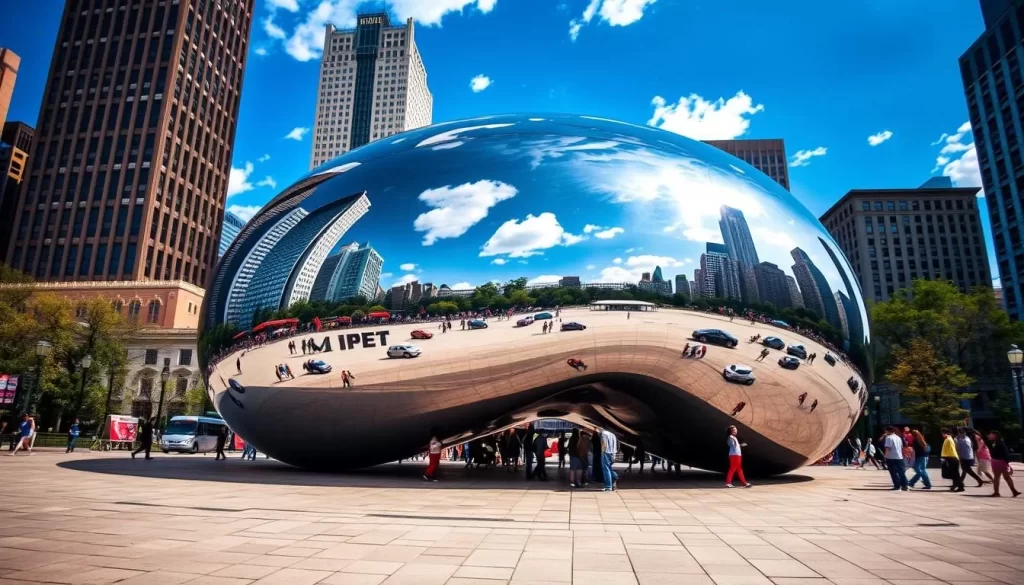
The 24.5-acre park hosts hundreds of free cultural events annually at the Frank Gehry-designed Jay Pritzker Pavilion, including concerts, film screenings, and dance performances.
Grant Park: Chicago’s Front Yard
Grant Park, known as “Chicago’s front yard,” covers over 319 acres and hosts many of Chicago’s most famous attractions, including the Art Institute of Chicago, Buckingham Fountain, and the Museum Campus. It’s a significant green space that offers stunning views of Lake Michigan and the city skyline.
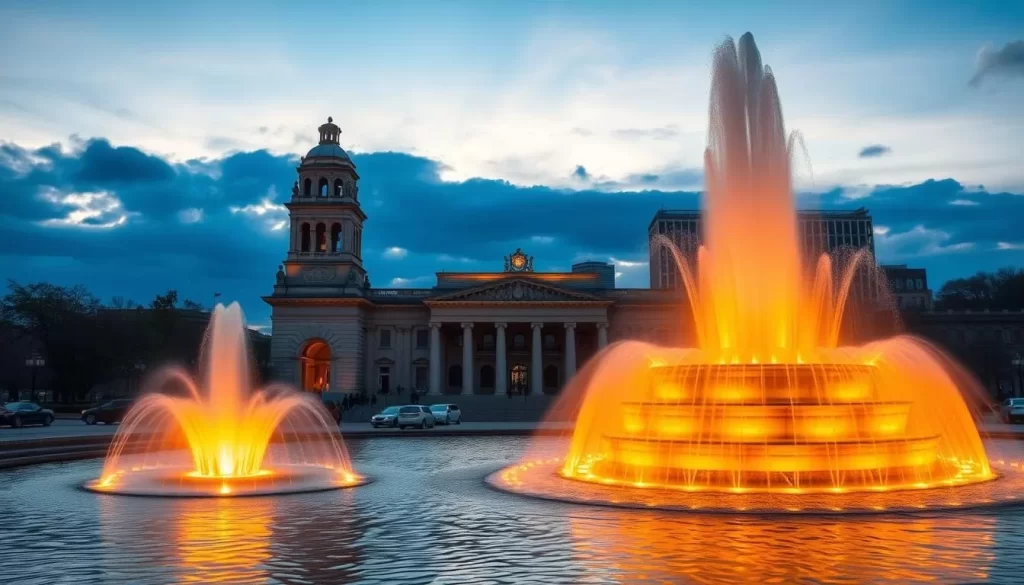
The park serves as a venue for major events like Taste of Chicago and Lollapalooza, making it a vibrant part of the city’s cultural scene.
Maggie Daley Park
Adjacent to Millennium Park, Maggie Daley Park offers family-friendly attractions, including a unique Play Garden with themed play areas inspired by Alice in Wonderland and Charlie and the Chocolate Factory. The park’s innovative skate park provides a quarter-mile path for ice skating in winter and roller skating in summer.

These downtown parks form a connected green space that serves as the cultural heart of Chicago, hosting everything from intimate gatherings to massive festivals that draw millions of visitors annually.
Iconic Neighborhood Parks Worth Visiting
You can explore some of Chicago’s most iconic neighborhood parks, each with its unique character and attractions. These parks not only provide recreational opportunities but also serve as important cultural anchors and green spaces that define their surrounding communities.
Lincoln Park: Chicago’s Largest Public Park
Lincoln Park is Chicago’s largest public park, spanning over 1,200 acres along the Lake Michigan shoreline. This expansive park offers a diverse range of activities and attractions, making it a popular spot for anyone searching for things to do in Chicago.
The Lincoln Park Zoo, one of the oldest zoos in the country, is a major highlight and provides free admission year-round.
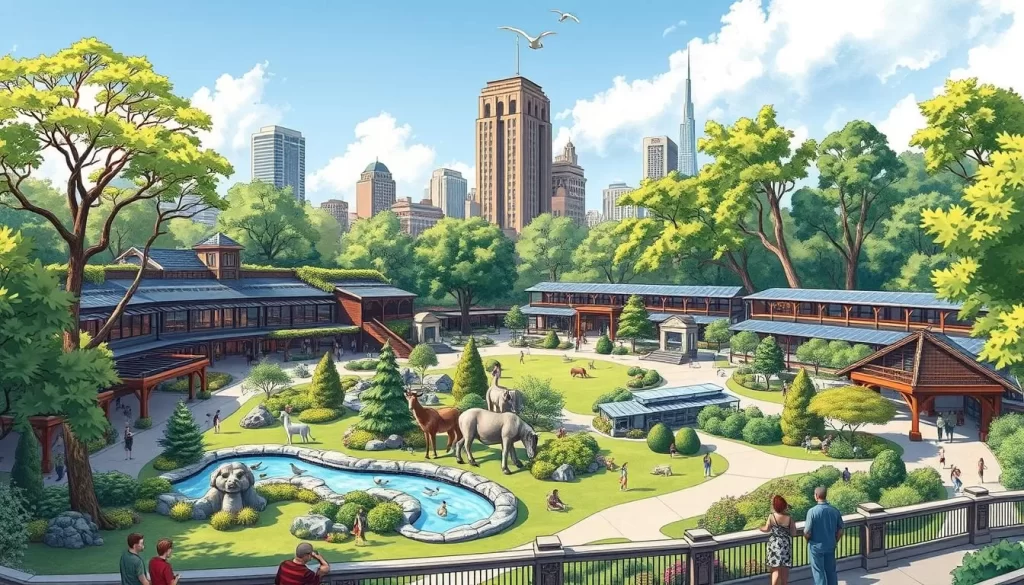
Humboldt Park
Humboldt Park, located in the vibrant Humboldt Park neighborhood, spans over 200 acres and is a cultural and recreational hub.
The park features beautiful lagoons, a historic boathouse, and the stunning Humboldt Park Fieldhouse.
When the weather is warm, Humboldt Park comes alive with picnics, barbecues, and food carts, while also hosting significant cultural events.
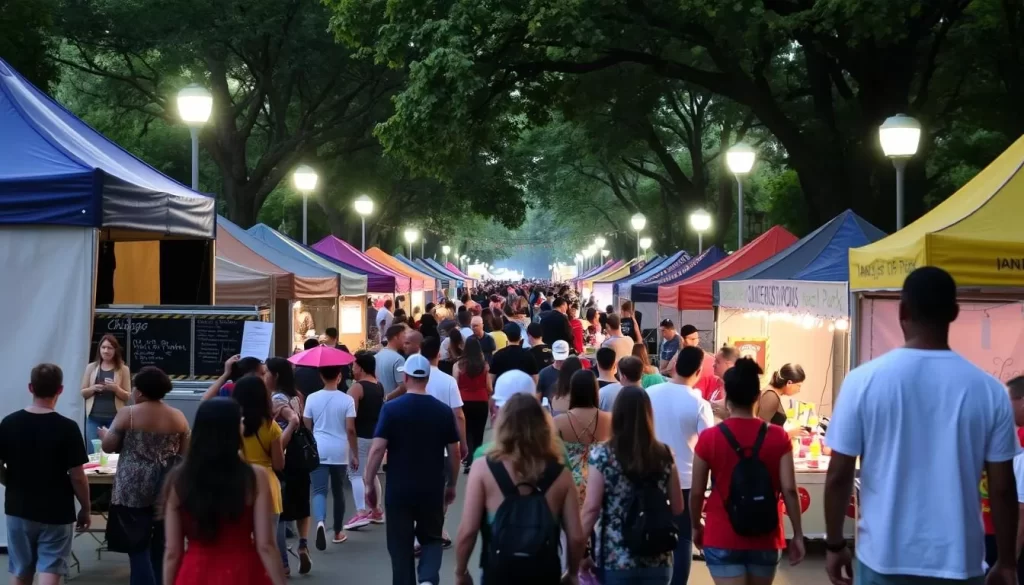
Jackson Park
Jackson Park, located on the South Side of Chicago, is a historical and recreational retreat.
The park, designed by famed landscape architect Frederick Law Olmsted, is home to the Museum of Science and Industry and the site of the 1893 World’s Columbian Exposition.
The crown jewel of Jackson Park is the Wooded Island, a peaceful bird-watching site that contains the beautiful Osaka Japanese Gardens.
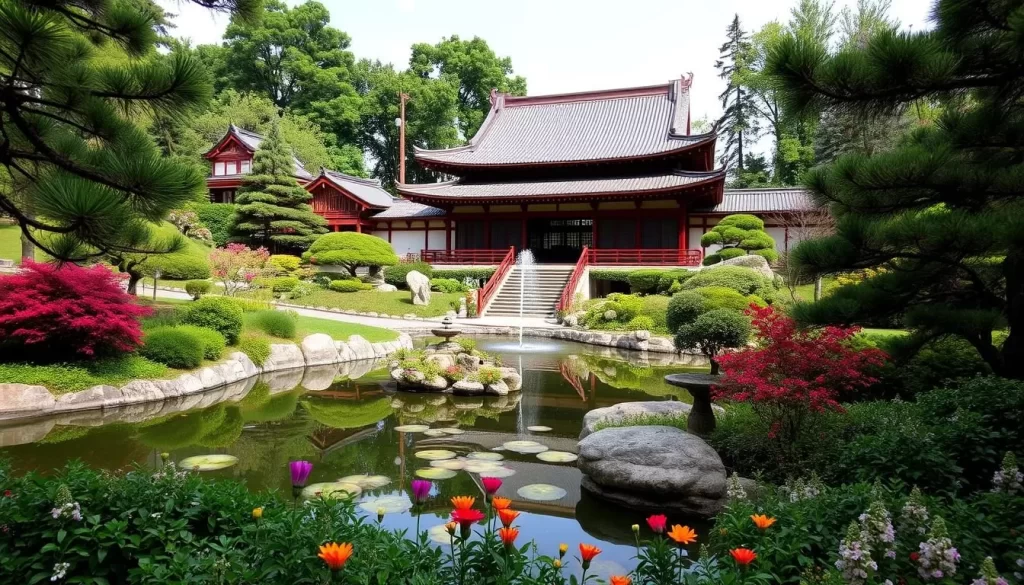
Parks for Nature and Wildlife Enthusiasts
Nature and wildlife enthusiasts will find Chicago’s parks to be a paradise, with numerous green spaces that support a wide range of flora and fauna. These parks not only provide a tranquil escape from the city’s hustle and bustle but also offer opportunities to engage with the natural world.
Northerly Island Park
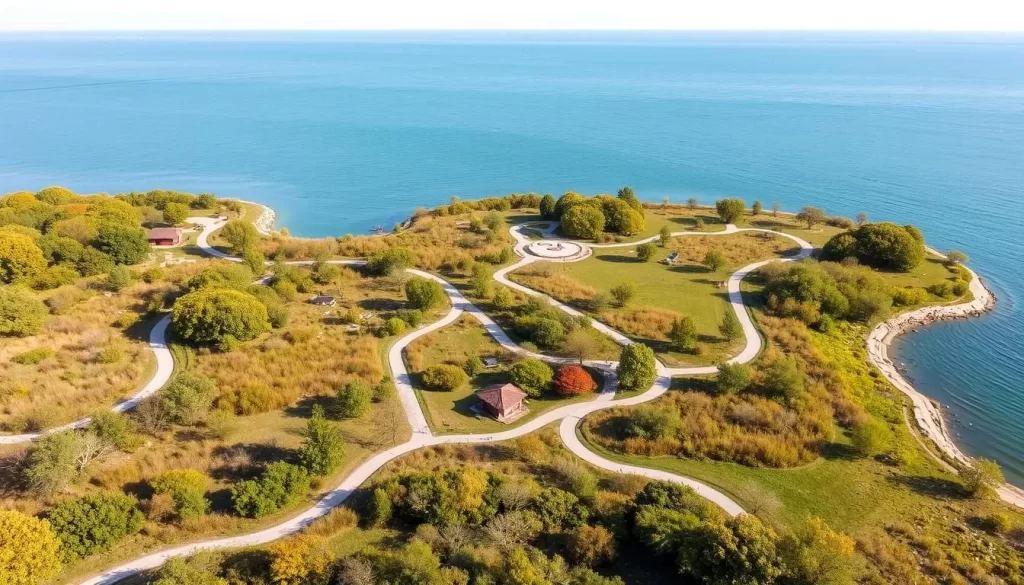
Northerly Island Park is a 119-acre peninsula jutting into Lake Michigan, transformed from an airport into a nature sanctuary. Visitors can encounter diverse wildlife and explore more than 150 varieties of native plants. The island’s five-acre pond and savanna with 20,000 trees and shrubs create a peaceful urban wilderness.
North Park Village Nature Center
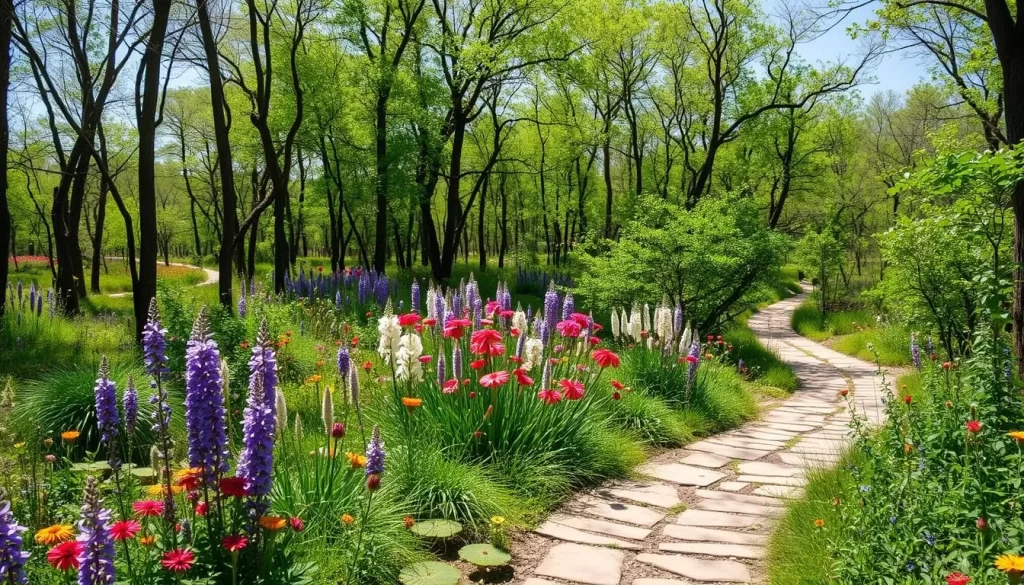
The North Park Village Nature Center spans 58 acres, with trails winding through diverse ecosystems, including woodland, wetland, prairie, and oak savanna. The Nature Center offers hands-on educational experiences, allowing visitors to interact with and learn about wildlife and natural resources.
Montrose Beach and Bird Sanctuary
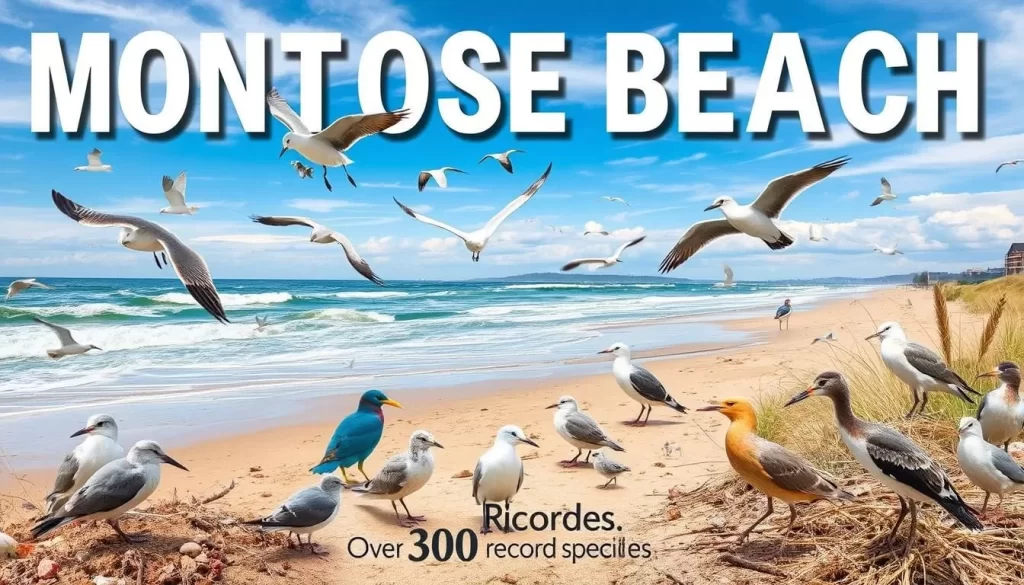
Montrose Beach is renowned for its bird sanctuary, with over 300 species of migratory birds recorded. The unique dune habitat features endangered plant life specific to the Lake Michigan shoreline, providing a glimpse into the region’s natural history and ecological importance.
Unique and Hidden Gem Parks
Beyond the well-known parks, Chicago has some hidden gems worth exploring. These unique parks offer a distinct experience, showcasing the city’s creativity in repurposing urban spaces and incorporating art, culture, and community needs into its park system.
Ping Tom Memorial Park
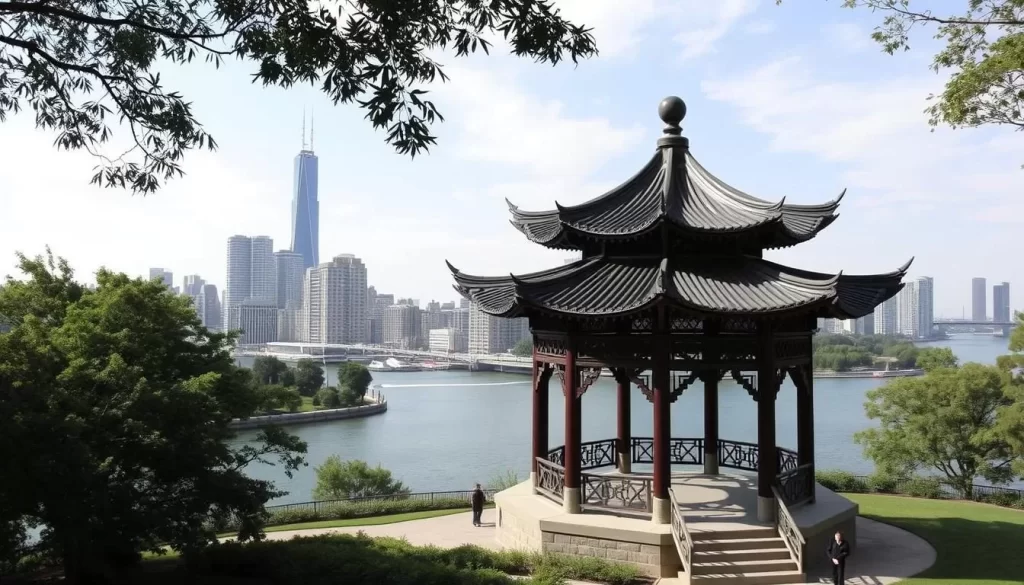
Ping Tom Memorial Park is a beautiful 17-acre riverside park in Chinatown, built on a former railway yard. The park features winding nature trails, a pagoda-style pavilion, and an impressive fieldhouse with a second-story patio and green roof. You can rent kayaks to explore the Chicago River, offering a unique perspective on the city skyline.
The606 Elevated Park
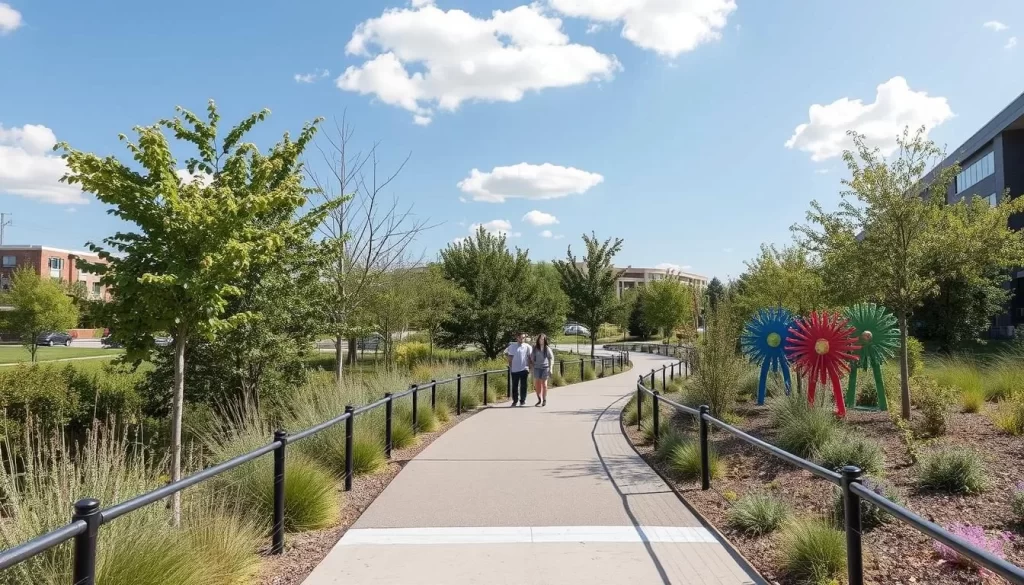
The606 is a 2.7-mile elevated park and trail built on an abandoned railway line. It runs through four Chicago neighborhoods, connecting communities with a safe, car-free transportation corridor. Along the way, you’ll find public art installations, native plantings, and observatory points, making it a practical and recreational space.
Oz Park
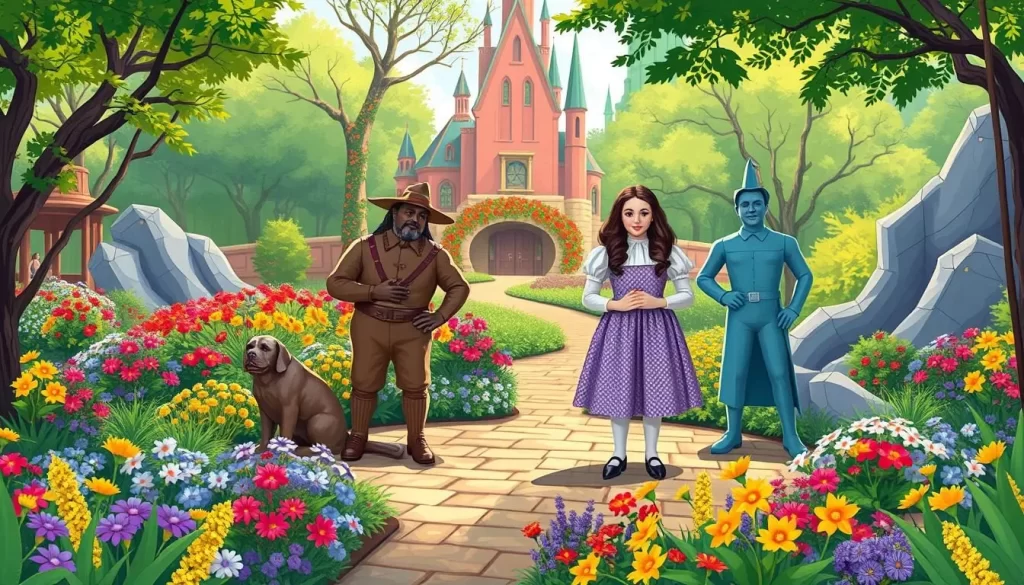
Oz Park delights visitors with its whimsical Wizard of Oz theme, featuring large sculptures of the Tin Man, Scarecrow, Cowardly Lion, and Dorothy with Toto. The park also includes “Dorothy’s Playground” and the peaceful Emerald City gardens, creating a playful environment for all ages.
Conclusion: Making the Most of Chicago’s Parks
The beauty of Chicago’s parks lies not just in their natural beauty but in the role they play in fostering community and connection.Chicago parksprovide year-round recreational opportunities, transforming spaces from summer concert venues to winter ice skating rinks.
With facilities distributed across all 77 community areas, thesegreen spacesare democratic, allowing people from all walks of life to gather, play, and connect with nature. Beyond recreation, they host cultural celebrations, farmers markets, and educational programs, enrichingcity life.
TheChicago Park Districtcontinues to invest in park improvements, focusing on ecological restoration and accessibility upgrades. Visitors should explore beyond famous downtown attractions to discover authentic neighborhood experiences.
Whether seeking active recreation, cultural experiences, or a peaceful place to relax,Chicago’s diverse park systemoffers something for everyone. This commitment to maintaining and expanding its park system reflects the city’s understanding of the importance of qualitygreen spacesfor public health, environmental sustainability, and quality of life.
The above is subject to change.
Check back often to TRAVEL.COM for the latest travel tips and deals.
